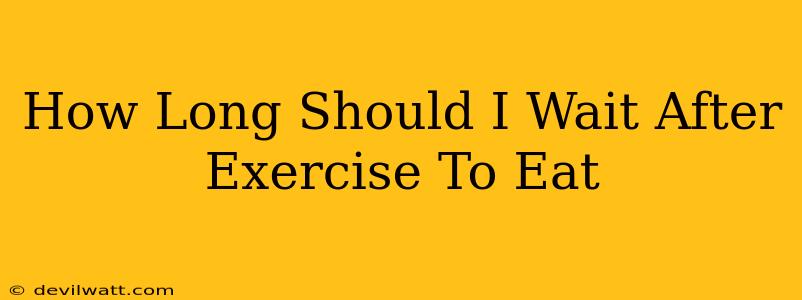Figuring out the ideal time to eat after a workout can be confusing. Should you grab a protein shake immediately? Or is it better to wait a while? The truth is, there's no one-size-fits-all answer. The optimal window depends on several factors, including the intensity and duration of your workout, your fitness goals, and your individual metabolism. This guide will help you navigate the post-workout nutrition landscape and find what works best for you.
Understanding the Post-Workout Recovery Process
After intense exercise, your body is in a state of recovery. Your muscles have been broken down, glycogen stores depleted, and your body needs replenishment to rebuild and repair. This is where post-workout nutrition plays a crucial role.
The Anabolic Window: Fact or Fiction?
You might have heard about the "anabolic window," a short period after exercise where your body is supposedly super receptive to nutrient absorption. While there's some truth to the idea that your body is more sensitive to nutrient uptake immediately after exercise, the window isn't as narrow as some claim. Research suggests that consuming nutrients within a few hours after exercise is perfectly adequate for recovery.
How Long to Wait: A Personalized Approach
Rather than focusing on a specific timeframe, consider these factors:
Intensity and Duration of Your Workout:
- Short, low-intensity workouts: If your workout was short and relatively easy (e.g., a leisurely walk), you might not need to eat immediately. Your body can readily replenish its glycogen stores from existing reserves.
- Moderate-intensity workouts: For moderate-intensity workouts (e.g., a 30-minute jog), consuming a snack or meal within 1-2 hours is beneficial.
- High-intensity workouts: After intense workouts (e.g., weight training, HIIT), eating within 30-60 minutes is often recommended to maximize muscle protein synthesis and glycogen replenishment.
Your Fitness Goals:
- Muscle Building: If your goal is muscle growth, prioritize protein intake within your post-workout meal. Aim for a combination of protein and carbohydrates to support muscle repair and energy replenishment.
- Weight Loss: If weight loss is your goal, focus on balanced meals and snacks throughout the day, including a post-workout meal that isn't overly calorie-dense.
Individual Factors:
- Metabolism: People with faster metabolisms might recover more quickly and may not need to eat as urgently as those with slower metabolisms.
- Hunger cues: Pay attention to your body's signals. If you're hungry, eat! Don't force yourself to wait if you genuinely need fuel.
- Tolerance: Some people experience digestive discomfort when eating immediately after exercise. If this happens to you, wait a bit longer before consuming a meal.
Ideal Post-Workout Foods and Drinks
The best post-workout meals and snacks should include a balance of carbohydrates and protein. Here are some ideas:
- Protein shakes: A quick and convenient way to refuel with protein.
- Greek yogurt with fruit: Provides protein and carbohydrates.
- Oatmeal with berries: A good source of complex carbohydrates and antioxidants.
- Chicken breast with brown rice: A balanced meal offering lean protein and complex carbs.
- Tuna salad sandwich on whole-wheat bread: Provides protein and healthy fats.
Listening to Your Body is Key
The most important thing is to listen to your body and find a post-workout nutrition strategy that works for you. Experiment with different timing and food choices to determine what optimizes your recovery and helps you achieve your fitness goals. Remember, consistency and overall nutrition are much more significant than obsessing over a precise post-workout eating window.

